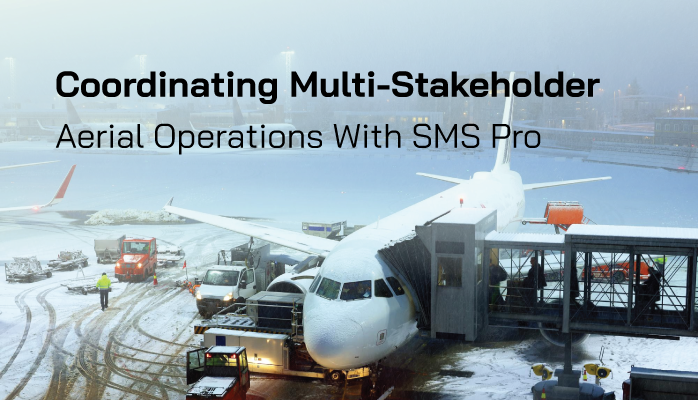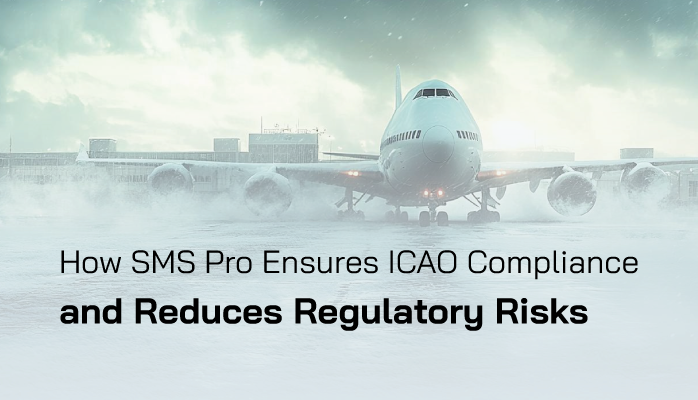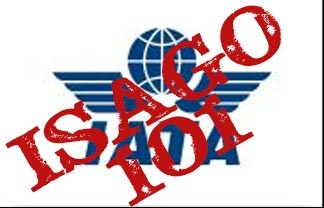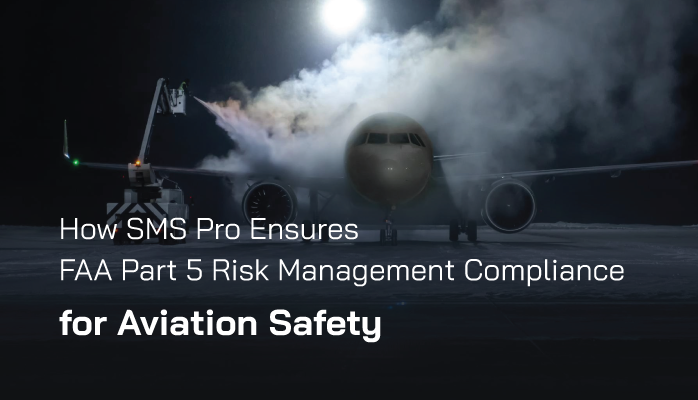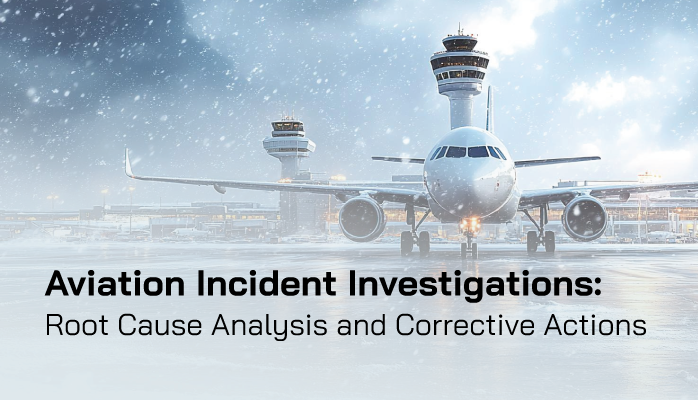Jamie Adams

Jamie Adams, born in Homer, Alaska, developed a deep interest in aviation mechanics growing up in a town surrounded by small airfields and seaplanes. After completing their Airframe and Powerplant (A&P) certification, Jamie began a career in aviation maintenance, working for 25 years in a Maintenance, Repair, and Overhaul (MRO) facility in Anchorage. There, Jamie specialized in aircraft systems, focusing on turbine engines and avionics for regional aircraft operating in Alaska’s demanding conditions. Jamie’s meticulous attention to detail and expertise in troubleshooting complex mechanical issues earned them a reputation as a trusted technician among pilots and operators. In 2012, Jamie joined SMS Pro, a leading provider of Safety Management System (SMS) software for the aviation industry. Transitioning from hands-on maintenance to a safety-focused role, Jamie brought their extensive MRO experience to the table, helping aviation organizations implement effective safety protocols. As a safety specialist at SMS Pro, Jamie develops risk assessment tools and training programs, ensuring maintenance teams adhere to global safety standards. Their practical insights have been vital in bridging the gap between operational maintenance and safety management. Jamie continues to reside in Homer, where they enjoy fishing and mentoring young aviation enthusiasts. They hold a degree in Aviation Maintenance Technology from the University of Alaska Anchorage and remain an active member of the Alaskan aviation community.
Introduction: The Complexity of Multi-Stakeholder Aerial Operations
Aerial operations for utility tasks, such as power line inspections and wildfire patrols, involve multiple stakeholders—pilots, ground crews, maintenance teams, vendors and wildfire response units—working in high-risk, dynamic environments.
Read More
Topics:
Aviation SMS Database,
4-Safety Promotion,
Risk Management Software,
1-Safety Policy
Accountable Executives' Worst Nightmares
n high-risk industries like aviation, transportation, and energy, a robust Safety Management System (SMS) is critical for ensuring operational safety, regulatory compliance, and organizational resilience. However, accountable executives—those ultimately responsible for SMS oversight—face significant risks that can undermine its effectiveness.
Two of the most pressing challenges are the loss of the primary safety manager and the loss of safety data due to reliance on single devices (e.g., laptops with spreadsheets or Word documents) or corrupt hard drives. These risks, if unaddressed, can lead to safety incidents, regulatory penalties, and reputational damage.
Read More
Topics:
Aviation SMS Implementation,
Aviation SMS Database,
3-Safety Assurance,
Risk Management Training
Why Flight Schools Need Scalable Safety Solutions
Flight schools, often starting with small fleets and tight budgets, face unique challenges in maintaining a robust Aviation Safety Management System. Safety managers and SMS consultants advising small operators must balance compliance with regulations like those from the European Union Aviation Safety Agency while accommodating growth in enrollment or fleet size. A 2024 study showed that scalable SMS programs reduce compliance costs by 25% for small operators.
Read More
Topics:
Aviation SMS Database,
4-Safety Promotion,
Risk Management Software
Introduction: The Data Revolution in Aerial Inspections
Aerial inspections of power lines, conducted by helicopters and drones, are critical for maintaining electrical grid reliability and preventing catastrophic failures. However, these operations face significant safety risks, with the Federal Aviation Administration reporting that 70% of utility aviation incidents stem from human factors, costing millions annually, per the International Air Transport Association.
Advanced sensors and high-definition cameras generate vast data, but without analytics, operators miss opportunities for predictive maintenance and risk mitigation. SMS Pro’s aviation SMS software leverages cutting-edge analytics to process this data, achieving a 15% downtime reduction and aligning with ICAO Annex 19 and FAA Part 5 standards.
Read More
Topics:
Aviation SMS Database,
3-Safety Assurance,
Risk Management Software,
2-Safety Risk Management
Why Aviation SMS Matters
In aviation, safety is the foundation of operational success. A robust Safety Management System (SMS) enables organizations to identify risks, comply with global regulations, and maintain efficiency under pressure.
Read More
Topics:
Aviation SMS Database,
Risk Management Software,
Quality-Safety Management
Introduction to SMS Compliance Challenges
In the aviation industry, safety is paramount, and a robust Safety Management System (SMS) is essential for ensuring compliance with regulations from bodies like the FAA, EASA, and ICAO. However, aviation safety managers face a myriad of challenges in maintaining an effective SMS, from regulatory document reviews to hazard identification and employee engagement. These tasks are often time-consuming, complex, and resource-intensive, creating significant burdens that can compromise safety and compliance.
Read More
Topics:
Aviation SMS Database,
3-Safety Assurance,
Risk Management Software,
2-Safety Risk Management
Challenge of ISAGO Audits for Ground Handlers
Ground handling operations, critical to airport safety and efficiency, face intense scrutiny under the IATA Safety Audit for Ground Operations (ISAGO), which ensures compliance with global safety standards. The Federal Aviation Administration notes that 70% of ground handling incidents stem from human factors, costing millions annually, per the International Air Transport Association.
Read More
Topics:
Aviation SMS Database,
3-Safety Assurance,
Risk Management Software,
2-Safety Risk Management
Introduction: The Compliance Challenge in Utility Helicopter Operations
Utility helicopter operations, encompassing power line inspections, wildfire patrols, and infrastructure maintenance, are critical for public safety and grid reliability. However, these low-altitude, high-risk missions face stringent regulatory oversight under FAA Part 91 and Part 135, with non-compliance risking fines up to $1.5 million per violation, per the Federal Aviation Administration.
Read More
Topics:
Aviation SMS Database,
3-Safety Assurance,
Risk Management Software,
2-Safety Risk Management
Introduction to Root Cause Analysis in Aviation SMS
Root cause analysis (RCA) is a critical process within an Aviation Safety Management System, enabling safety managers to identify underlying causes of incidents and prevent recurrence. Whether it’s a near-miss on the tarmac or a maintenance oversight, RCA digs beyond symptoms to address systemic issues. The Federal Aviation Administration emphasizes RCA as a cornerstone of FAA Part 5 compliance, ensuring proactive risk mitigation.
Read More
Topics:
3-Safety Assurance,
2-Safety Risk Management
Introduction: The Rise of UAS and SORA Compliance
The Unmanned Aircraft System (UAS) sector is soaring, with projections estimating a $63 billion contribution to the global economy by 2025, according to IATA.
From delivery drones to urban air mobility, UAS operations are reshaping aviation. However, advanced operations like Beyond Visual Line of Sight (BVLOS), Operations Over People (OOP), or fleet missions carry significant risks, necessitating rigorous safety frameworks.
Read More
Topics:
3-Safety Assurance,
2-Safety Risk Management

